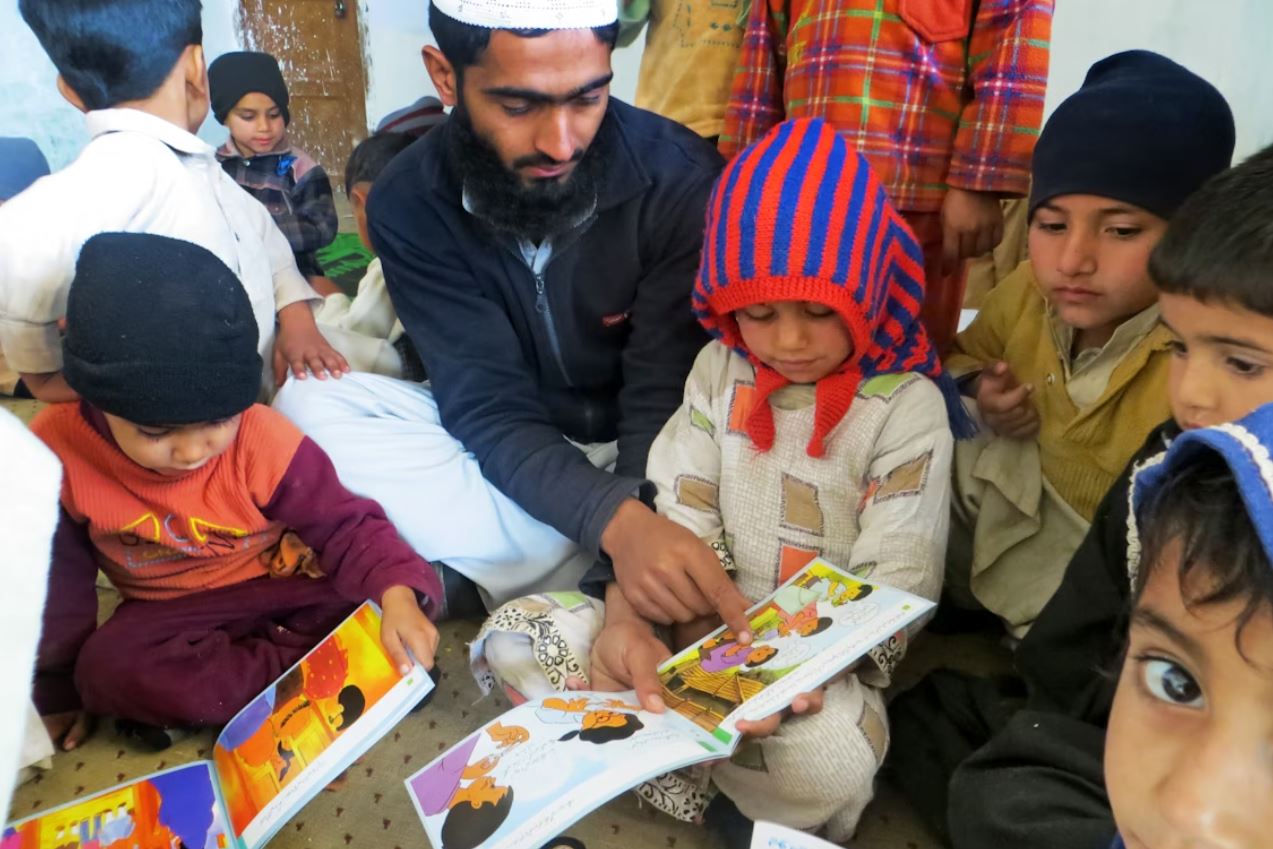

Over the years, various studies have proven that early childhood education and development (ECED) is an integral tool for socioeconomic uplift of any country, particularly developing and underdeveloped countries. In developing countries, poverty, lack of good nutrition, and limited access to health services, care, and stimulation means nearly 40 percent of children under five fail to reach their full potential. The situation is no different in Pakistan, where 63 percent of children ages three to five are not receiving any education related to early childhood development.
Some 40 percent of Pakistan’s children under five years old are underweight, and the country ranks sixth in the world for growth-stunted children. According to an Annual Status of Education Report, malnutrition and lack of services for young children are impacting learning in schools across the country.
It’s been shown that children who do not receive adequate nutrition in the first 1,000 days of life can suffer irreparable negative effects to their cognitive functioning. Moreover, a malnourished mother is likely to give birth to a child who is already disadvantaged. Sadly, the significance of proper nutrition and education during the earliest years of life is not recognized as a national priority or a public health crisis.
ECED affects development in both a human context and an economic context. In the human context, research confirms what every parent has surely observed: the early period of a child’s life is critical to physical and mental growth. Children learn to move, communicate, and interact with the world, and develop a sense of personal and cultural identity. Discrimination based on ethnicity, gender, disability, or class or caste can prevent young children from fully participating in society and destabilize their feelings of well-being and self-esteem.
Economically, ECED is a social equalizer that can be leveraged to break long-standing cycles of intergenerational poverty. The biggest gains are made by children who are most disadvantaged. Implementing quality ECED programs can have broad social benefits, promote equity, ensure optimal financial returns, and secure economic benefits.
Children’s Global Network–Pakistan, in collaboration with the Ministry of Federal Education and Professional Training, established the Parwaan–National ECED Centre of Excellence. Parwaan recognizes ECED as a critical investment in Pakistan’s future, and aims to develop a national strategy on early childhood education and development for children ages zero to three and three to six.
The organization serves as an apex body for the mobilization of federal and provincial governments as they implement the UN’s Sustainable Development Goals—specifically target 4.2, which states that by 2030, girls and boys should have access to quality early childhood development care and preprimary education. It is a platform for E9 countries and other global partners to share experiences and showcase best practices.
Since its inception, Parwaan has engaged parliamentarians at the provincial and national levels. The partnership model works well, and as a result, a commission on early-year learning and nutrition was formed on February 13, 2016, during Pakistan’s National Parliamentary Meeting on Malnutrition.
Parwaan is focusing on building the professional capacity of ECED service providers and initiating sustainable interventions at the grassroots level. There are hardly any opportunities to earn academic or technical qualifications for ECED in the country. To bridge this gap, Parwaan introduced an ECED diploma course in partnership with Allama Iqbal Open University, which will provide distance-learning opportunities to ECED practitioners. Moreover, Parwaan is working closely with the government to revamp five low-cost Montessori classes with the latest ECED techniques under the prime minister’s education reform initiative.
In the year-and-a-half since its launch, Parwaan has begun a much-needed process in Pakistan, advocating at the highest political levels and implementing on-the-ground programs for at-risk children. By ensuring all children start out with an equal chance, we shore up our future as a nation.
Children’s Global Network–Pakistan is a grantee of the Open Society Foundations.
by Mehnaz Aziz Mehnaz Aziz is president of Parwaan and founding director of Children’s Global Network–Pakistan.
Published by OPEN SOCIETY FOUNDATION on August 4, 2016 https://www.opensocietyfoundations.org/voices/pakistan-begins-see-how-early-childhood-development-could-transform-its-future


Leave a Reply